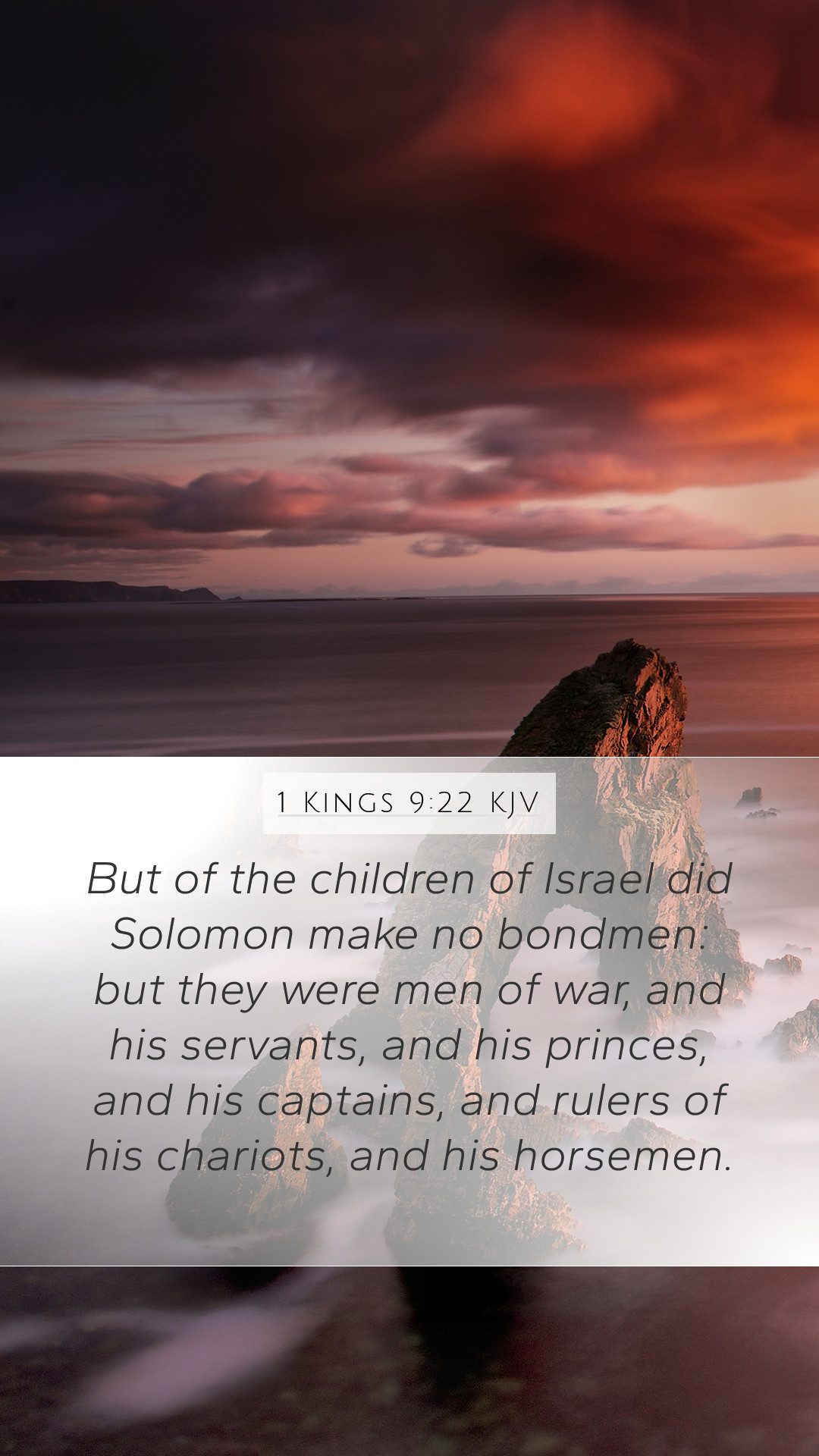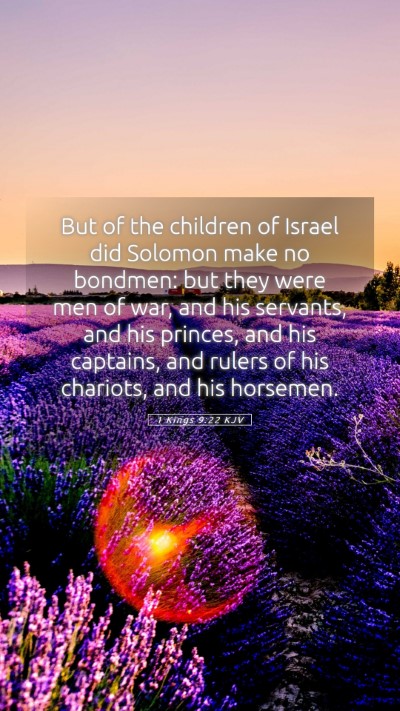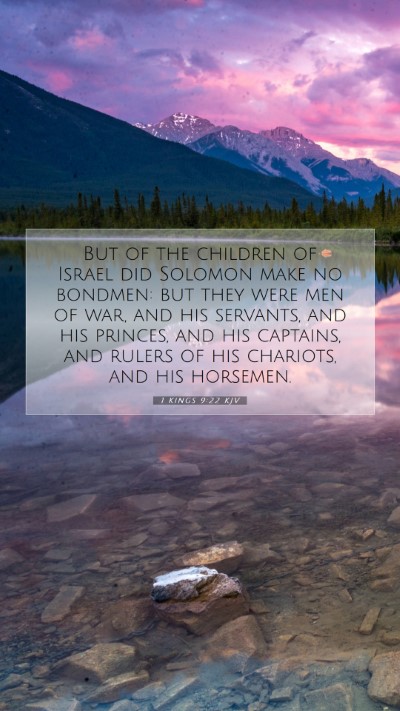Understanding 1 Kings 9:22
1 Kings 9:22 states: "But of the children of Israel did Solomon make no bondmen: but they were men of war, and his servants, and his princes, and his captains, and rulers of his chariots and his horsemen."
Meaning of the Verse
This verse highlights King Solomon's policy concerning the Israelites compared to other nations. It sets the tone for Solomon's treatment of his people, emphasizing their status rather than subjugation. The commentary on this verse reveals several key insights into its meaning and implications.
Contextual Background
In understanding this verse, it’s crucial to look at the historical background of Solomon's reign. Solomon was known for his wisdom and wealth, having built the Temple in Jerusalem. His policies reflected an effort to maintain peace and unity among the tribes of Israel while also organizing a formidable administration.
Insights from Public Domain Commentaries
- Matthew Henry: Henry emphasizes that Solomon's decision to keep the Israelites free from servitude demonstrates God's intention for Israel as a chosen people. He notes that Solomon valued the contribution of his fellow Israelites in important roles rather than treating them as mere laborers.
- Albert Barnes: Barnes explains that this exclusion of Israelites from slavery was a significant decision, highlighting Solomon’s recognition of their noble heritage. He points out that they were entrusted with roles that stirred a sense of responsibility and honor among them, contrasting with the practice of enslaving other nations.
- Adam Clarke: Clarke focuses on the notion of servitude, indicating that while other nations were subjected to labor, the Israelites had a distinct honor. He interprets this verse as a reflection of God’s covenant with His chosen people, affirming their dignity and role in governance and military affairs.
Bible Verse Interpretations
The interpretations drawn from 1 Kings 9:22 extend to various aspects:
- Servitude vs. Dignity: This verse elucidates the bond between leadership and dignity, portraying how God's people were to serve in honorable capacities. Solomon's choice signifies a broader biblical ethos regarding God’s plan for service and leadership among His people.
- Historical Context: The verse must be understood in its historical context where Solomon’s reign marked a high point in Israel's power and influence. This reflection allows readers to appreciate the political strategy involved in Solomon's leadership.
- Type of Governance: The governance model reflected in this verse signifies a kingdom where the ruling power values its citizens, ensuring they are not oppressed but given roles that enhance national unity and strength.
Application of the Verse
Applying this biblical passage to daily life invites believers to consider how they treat those under their authority or influence. It calls for respect, dignity, and recognition of individual worth, aligning with the notion of servant leadership as exemplified by Solomon.
Reflection Questions
- How can we honor and uplift those around us in our responsibilities?
- What does God expect from leaders in contemporary society?
- How does the context of servitude in our world today challenge us to think differently about leadership and service?
Bible Cross References
- Deuteronomy 15:12-15 - Instructions on treating slaves and servants.
- 1 Chronicles 28:1 - Solomon's leadership role with the Israelites.
- 2 Chronicles 8:9 - Further mentions of Solomon's governance and labor relations.


